Jombieland Is A Riotous, Exhilarating Antidote To The Epidemic Of Cinema’s Toxic Men
Led by an excellent Binnu Dhillon, Jombieland (Pind Peya Saara Jombieland Baneya) is what mainstream cinema ought to deliver for the price of a premium film ticket.
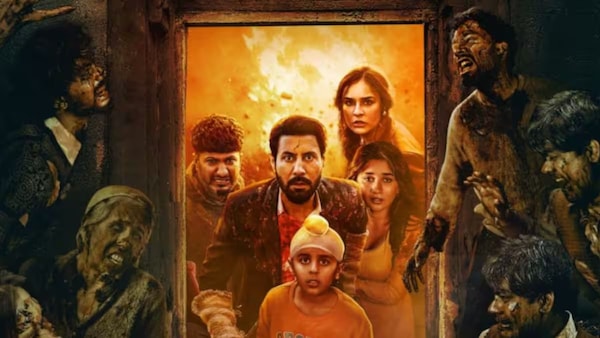
Promo poster for Jombieland.
Last Updated: 06.10 PM, Jun 14, 2025
NOBODY DOES COMEDY like Punjabi cinema. It’s one of those few industries — maybe in the world — that mines humour from its medium, the language it's written and performed in. The meter, the pitch, and the very pedagogy of the Punjabi language fit a genre that is usually hard to execute. Exactly why, then, has it taken this industry decades to submit gleefully to a world it seems was born to coin, is a question for another day. But here it is, a Punjabi film about a zombie (no wait... Jombie) apocalypse that will knock your socks off, but strangely be more personal than mindlessly parodic. This is one of Punjabi cinema’s finest moments. A thrilling, riotous theatrical experience that you’d fish cinema lovers could experience in the language of its origin.
The year is 2032. Punjab, Chandigarh especially, has been run over by a zombie infestation. We are shown the ruins, the decrepit walls of what is famously India’s best-planned city. The tone is serious, akin to a moody horror piece. To prevent this eventuality, the country — or the region, at least — will need an unlikely hero, the film says. This is his story.
Binnu Dhillon, the dependable doyen of the Punjabi comedy scene, plays Jatinder (aka Jeeti, aka 22), a presumably high-achieving motivational speaker struggling to make ends meet. It’s the classical Punjabi archetype — an underachiever somehow piling through life on sheer luck and doggedness. There is a dumb charm about this type of quasi-hero, and only a certain cinematic milieu can pull it off with such self-effacing grace.
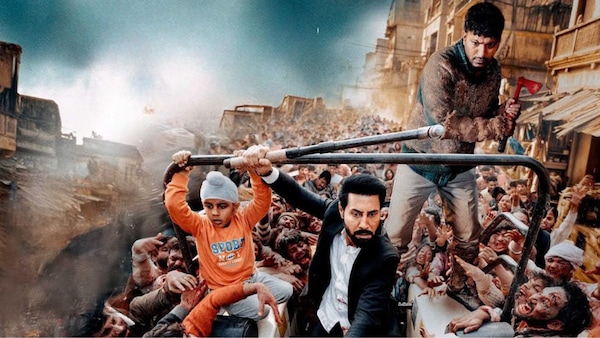
On the outskirts of Chandigarh, cows suddenly begin to die overnight. A tomboyish researcher from Haryana, Aanchal Hooda, played by the lovely Angira Dhar, slaloms into town on her motorcycle. A hat tip to the makers for offering a woman the kind of entry and momentousness usually reserved for men. As Hooda investigates, she discovers milk — so essential to the Punjabi lifestyle — might become an agent for the spread of a deadly fungal infection. One that turns living beings into flesh-eating monsters. She’s right, but she’s also already too late.
For the first quarter of the film, Jombieland ducks its promise of a wasteland overrun by cannibals. We are instead asked to contemplate the personal ordeals of Jeeti, who is in a last-chance race to prize his beloved girlfriend from his to-be father-in-law. But Jeeti is broke, down on his luck and harmlessly useless. His girlfriend, played by a K-drama-obsessed Kanika Mann, is set to marry a politically influential goon. The reasons for this elaborate build-up are neatly tied together once the apocalypse takes over. It’s enthralling to think a zom-com, if you like, wants to anchor its madness in human flesh and emotion, before it proceeds to rip it off as a form of catharsis. In that sense, it’s deeper and more urgent than Zombieland — the American franchise it sort of imitates. To the point that you worry if the film will end up taking itself too seriously. But then, hell, thankfully, does break loose.
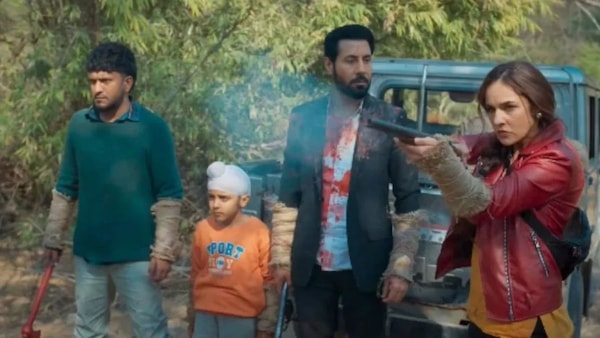
Directed by Deepak Thaper and mounted by Next Level Productions, Jombieland is euphorically situated in a place where good writing, pitch-perfect acting and the right amalgamation of pop-culture tokenism flourish. The punchlines never sound crude, there is ample space for characters to stretch themselves in, and there is also this foreboding sense of doom and uncertainty that perpetuates a kind of seductive anxiety. The kind that brings you closer to people you have taken for granted. The kind that instils a kinship beyond the ties of blood. Even amidst the silly, jocular antics of its 2-hour road journey between Punjab’s villages, Jombieland smartly swerves between the broader and the granular. Only cinema made with steadfast conviction and vertical ambition can make a kid — Jeeti’s nephew played here by the lovely Gurteg Guri — the beating heart of a film populated by adults out of their depth. It’s bold, charming and exquisitely put together.
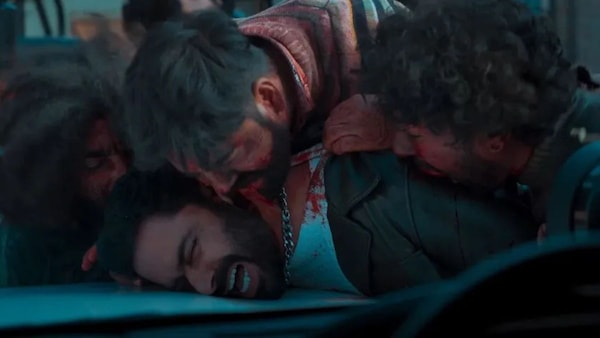
In times when pan-India cinema has become synonymous with ultra-masculine vessels of toxicity, Punjabi cinema offers a leaf from the other side of the divide. A place where the male protagonist happily embodies the biggest loser on screen. A woman rescues the day, and a kid steals every bit of thunder there is on offer. Not to mention, there is multiculturalism to boot, a welcome commitment to root the story in the socio-cultural politics of its setting, and the gravitas to not just making hay, but also help the sun shine on the intricacies of storytelling.
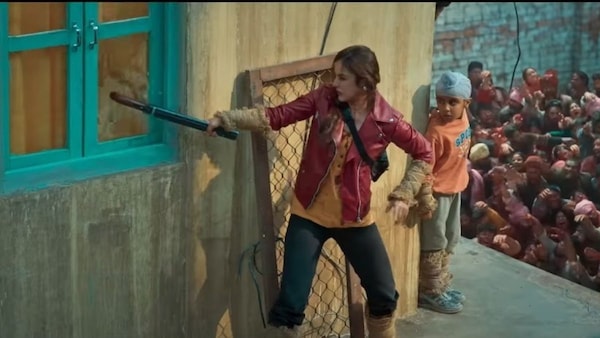
Sure, there are tacky visuals, needless montage with what looks like AI-generated animation, but those are singularities in a film that comes together seamlessly as a whole. It’s what summer blockbusters ought to do. Entertain, engage and keep you at the edge of your seat without making the spine of reason uncomfortable. It’s perhaps a tragedy that Punjabi’s sur, its essence, is almost always lost in translation. It can’t travel the way cinema with subtitles can. But that’s maybe a loss for those who can’t experience the purgatorial powers of a rip-roaring Punjabi comedy at the height of its prowess. This should be a glorious tipping point. And nothing says more so than the fact that, thankfully, there will be a sequel.
